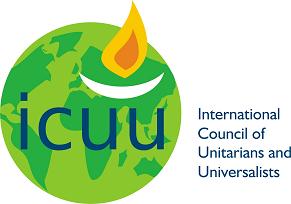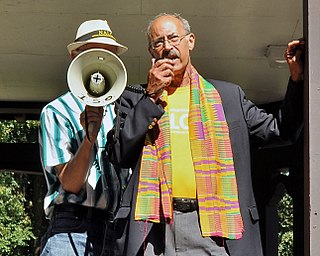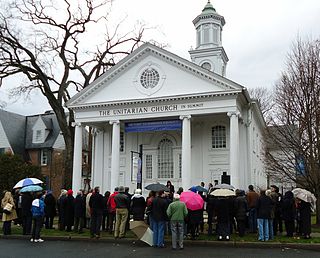
Canadian Unitarian Council (CUC) formed on May 14, 1961 to be the national organization for Canadians who belong to the Unitarian Universalist Association. Until 2002, almost all member congregations of the CUC were also members of the UUA, and most services to CUC member congregations were provided by the UUA. However, after an agreement between the CUC and the UUA, most services since 2002 have been provided by the CUC to its own member congregations, with the UUA continuing to provide ministerial settlement services. Some Canadian congregations have continued to be members of both the CUC and UUA, while others are members of only the CUC.

The International Council of Unitarians and Universalists (ICUU) is an umbrella organization founded in 1995 comprising many Unitarian, Universalist, and Unitarian Universalist organizations. Some groups represent only a few hundred people; while the largest, the Unitarian Universalist Association, had more than 160,000 members as of May 2011—including over 150,000 in the United States.

Unitarian Universalist Association (UUA) is a liberal religious association of Unitarian Universalist congregations. It was formed in 1961 by the consolidation of the American Unitarian Association and the Universalist Church of America. Both of these predecessor organizations began as Christian denominations of the Unitarian and Universalist varieties respectively. However, modern Unitarian Universalists see themselves as a separate religion with its own beliefs and affinities. They define themselves as non-creedal, and draw wisdom from various religions and philosophies, including humanism, pantheism, Christianity, Hinduism, Buddhism, Taoism, Judaism, Islam, and Earth-centered spirituality. Thus, the UUA is a syncretistic religious group with liberal leanings.

Unitarian Universalism (UU) is a liberal religion characterized by a "free and responsible search for truth and meaning". Unitarian Universalists assert no creed, but instead are unified by their shared search for spiritual growth, guided by a dynamic, "living tradition". Currently, these traditions are summarized by the Six Sources and Seven Principles of Unitarian Universalism, documents recognized by all congregations who choose to be a part of the Unitarian Universalist Association. These documents are 'living', meaning always open for revisiting and reworking. Unitarian Universalist (U.U.) congregations include many atheists, agnostics, and theists within their membership—and there are U.U. churches, fellowships, congregations, and societies all over America—as well as others around the world. The roots of Unitarian Universalism lie in liberal Christianity, specifically Unitarianism and universalism. Unitarian Universalists state that from these traditions comes a deep regard for intellectual freedom and inclusive love. Congregations and members seek inspiration and derive insight from all major world religions.

The leather subculture denotes practices and styles of dress organized around sexual activities that involve leather garments, such as leather jackets, vests, boots, chaps, harnesses, or other items. Wearing leather garments is one way that participants in this culture self-consciously distinguish themselves from mainstream sexual cultures. Many participants associate leather culture with BDSM practices and its many subcultures. For some, black leather clothing is an erotic fashion that expresses heightened masculinity or the appropriation of sexual power; love of motorcycles, motorcycle clubs and independence; and/or engagement in sexual kink or leather fetishism.

The National Coalition for Sexual Freedom (NCSF) is an American sex-positive advocacy and educational organization founded in 1997. NCSF has ninety coalition partners, and over sixty supporting members. NCSF advocates on behalf of adults involved in alternative lifestyles with respect to sexuality and relationship composition, specifically for tolerance and non-discrimination of those so identified, as well as education for adults involved in such lifestyles. The organization's main office is in Baltimore, Maryland.

The Covenant of Unitarian Universalist Pagans (CUUPS) is an association of Unitarian Universalists who identify with the precepts of classical or contemporary Paganism: celebrating the sacred circle of life and guiding people to live in harmony with the rhythms of nature. CUUPS members foster the development of "liturgical materials based on earth- and nature-centered religious and spiritual perspectives" as well as encourage "greater use of music, dance, visual arts, poetry, story, and creative ritual in Unitarian Universalist worship and celebration."

A variety of religious emblems programs are used by the Boy Scouts of America (BSA) to encourage youth to learn about their faith and to recognize adults who provide significant service to youth in a religious environment. These religious programs are created, administered and awarded by the various religious groups, not the BSA, but each program must be recognized by the BSA.

The leather pride flag is a symbol used by the leather subculture since the 1990s. It was designed by Tony DeBlase, and was quickly embraced by the gay leather community. It has since become associated with leather in general and also with related groups such as the BDSM community.

Liberal Religious Youth (LRY) was an autonomous, North American youth organization affiliated with the Unitarian Universalist Association (UUA). LRY was unique as a church youth group in that it was governed solely by its members, who were generally between the ages of fourteen and nineteen years old, with adults serving only in an advisory capacity. Though partial funding and office space were provided by the UUA, primary funding was through an independent endowment, the investment of which was controlled by the LRY board of directors.
General Assembly (GA) is an annual gathering of Unitarian Universalists of the Unitarian Universalist Association. It is held in June, in a different city in the United States every year. The last GA held outside the United States was in Quebec in 2002, after which congregations belonging to the Canadian Unitarian Council separated from the UUA. Member congregations send delegates and conventioneers to participate in the plenary sessions, workshops, regional gatherings, public witness events, and worship services. In recent years, attendance at each General Assembly has reached over 5,500.

The Rev. William G. Sinkford is a Unitarian Universalist minister who served as the seventh president of the Unitarian Universalist Association of Congregations (UUA), from 2001 to 2009. His installation as UUA president made him the first African American to lead that organization, or any traditionally white religious denomination in the United States.

Unitarian Universalism and the Unitarian Universalist Association (UUA) have a long-standing tradition of welcoming LGBT people.
Young Religious Unitarian Universalists (YRUU) is a term used within the Unitarian Universalist Association (UUA) in the United States and formerly the Canadian Unitarian Council. YRUU was an organization at the continental level primarily run by youth, ranging in age from 14 to 20, with mentoring adult partners. The continental organization of YRUU ended in 2008, but the term is still used by certain active youth groups and conferences at the congregational and district levels.

Peter Morales is the former president of the Unitarian Universalist Association. Morales was the UUA's first Latino president. In the early 2000s, he was the senior minister of the Jefferson Unitarian Church in Jefferson County, Colorado, a rapidly growing Unitarian Universalist congregation in the northwestern Denver-Aurora Metropolitan Area. He also worked for the UUA from 2002 to 2004. In 2008, he announced his candidacy for president, and in 2009 he was elected. As the result of a controversy regarding the UUA's hiring practices and charges of institutional racism, Morales resigned as president in 2017, three months before the end of the term.
Desmond Ravenstone is a writer, blogger, activist and educator on sexuality issues, who has spoken on BDSM and other alternative sexual identities, and currently focuses on sex workers' rights. A former Unitarian Universalist lay leader, he has frequently addressed the intersection of sexuality and spirituality.
Unitarian Universalists for Polyamory Awareness (UUPA) is an independent organization of Unitarian Universalists seeking to promote greater understanding and acceptance of polyamory within the Unitarian Universalist Association and its member congregations.
L&G may serve as an acronym for:











